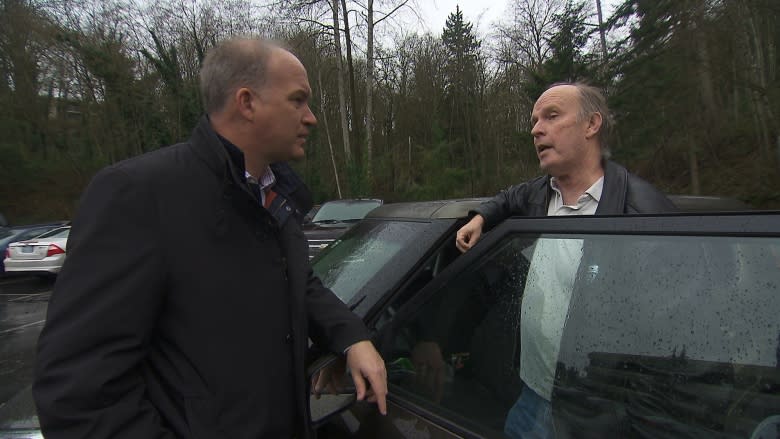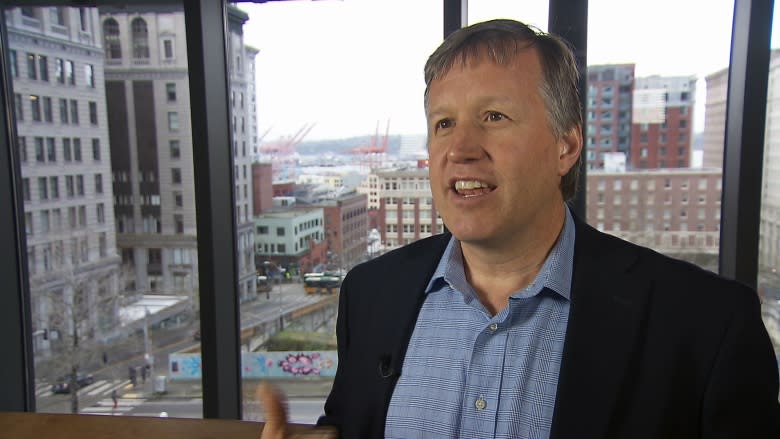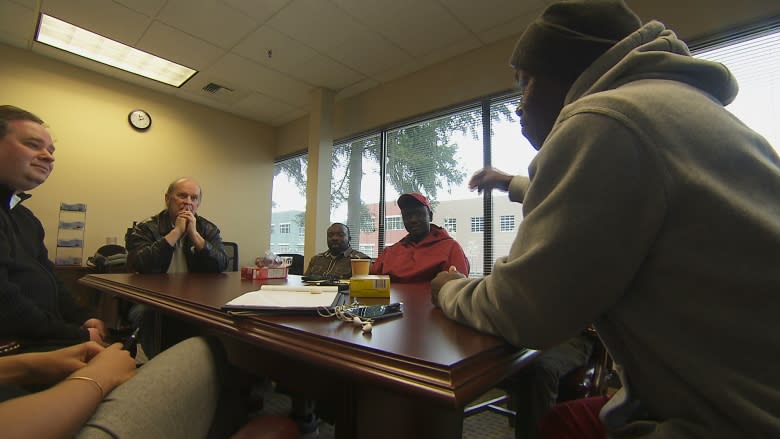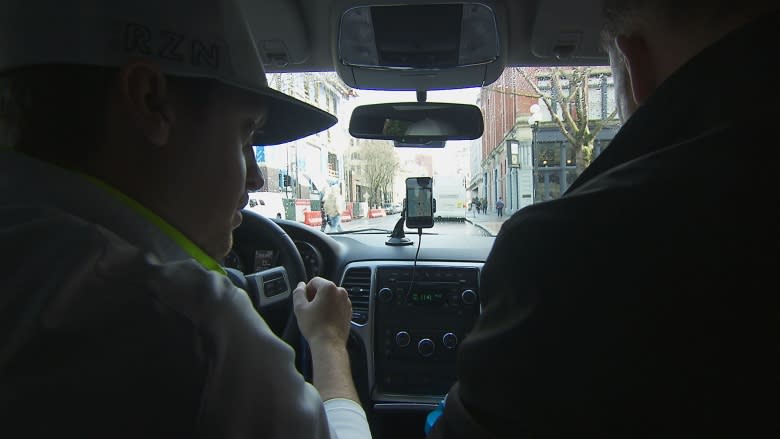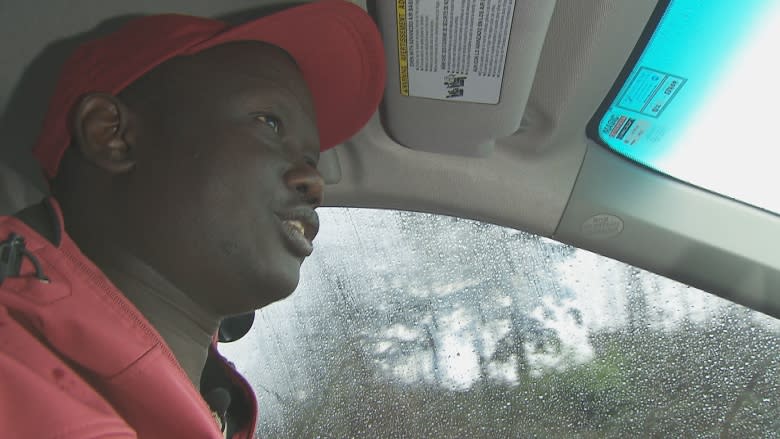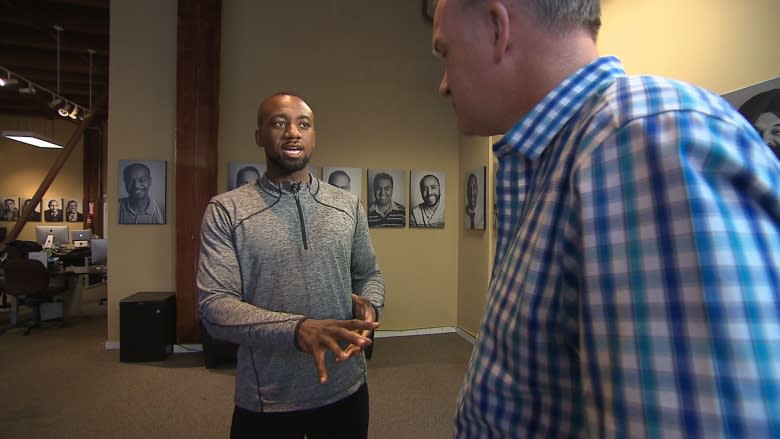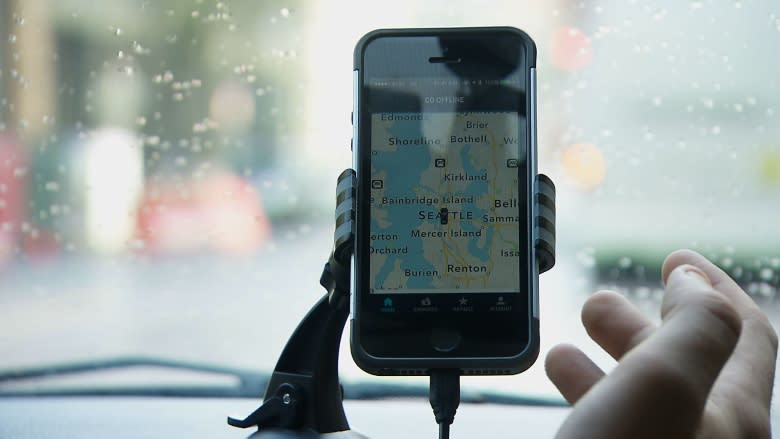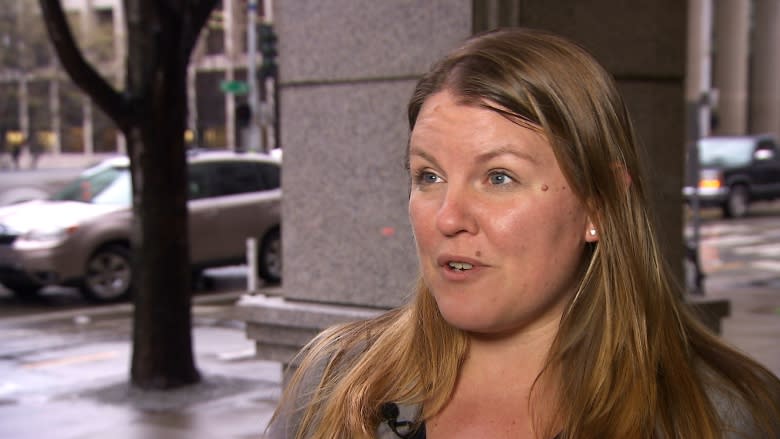Unionizing Uber: New front in battle over wildly successful ride-hailing app
There's a four-wheeled workers' revolution spinning through the streets of Seattle that could end up rolling over one of the most profitable business models of the so-called "sharing economy."
Drivers for the ride-hailing service Uber have been given the right to unionize by Seattle city council, the only jurisdiction in North America to do so.
The union drive brings the potential to achieve what regulators in cities around the world, including in Canada, have been mostly ineffective at doing — imposing local rules and labour standards on how Uber relates with its drivers.
"We have no say," Seattle Uber driver Don Creery told CBC News on a recent visit to the city. "We can email the company about issues, but they just get ignored. It seems the company has an agenda to push the prices as low as they can."
Rates, benefits as contentious issues
The rates Uber pays its drivers, as well as other compensation issues, such as tipping, are among the most contentious claims.
Uber's rates vary from city to city but in Seattle, Creery says they began at $1.80 US a mile when the ride-hailing service first started up there in 2013.
But now Creery says rates are just over a dollar and can drop even lower at a moment's notice when Uber announces special pricing.
Uber counters that drivers have the flexibility to drive whenever and wherever they want, but Creery disagrees.
"When the rates were higher, that flexibility option was real. When the rates go down, there are certain hours you have to work."
City Coun. Mike O'Brien has championed the drivers' cause before Seattle's council and co-wrote the bylaw granting them collective bargaining rights.
"What we're trying to do in Seattle with this legislation that lets drivers collectively bargain is say we're going to acknowledge this is a new world," said O'Brien.
"We like the creativity and innovation, but we want some innovation for workers."
Hugely profitable
The obstacles to unionization are significant, but so is the potential to disrupt Uber's wildly successful business model.
One recent valuation claimed the company is worth more than $62 billion US.
The question of whether Uber drivers are employees or independent contractors is at the heart of the dispute.
In both the United States and Canada, federal anti-trust legislation — the cornerstone of modern labour law — prohibits contractors from unionizing so as to avoid practices such as price-fixing and to encourage competition.
The U.S. Chamber of Commerce has slapped Seattle with a lawsuit, claiming its local, pro-union bylaw is an overt violation of the federal statute.
But O'Brien, the bylaw's author, argues the federal law never anticipated a company like Uber, where workers meet the definition of both contractors and employees.
"In some ways, these drivers look like independent contractors. They own their own cars, they set their own hours," says O'Brien.
"In other cases they look like workers. They don't set their rates of pay. Uber can decide arbitrarily that you can't work for us. You get 'deactivated' or fired. So it's a hybrid."
Questions for Canada
Some Canadian jurisdictions, such as British Columbia, recognize a third category of workers called "dependent contractors."
An example might include truck loggers, who own their hauling rigs but work primarily for one forestry company and receive set rates.
Tom Knight, a professor with UBC's Sauder School of Business, says whether such employees can unionize is decided on a case-by-case basis by the provincial labour relations board.
"I wouldn't hazard a prediction as to what would be found to be the case [with Uber drivers]," Knight said.
On a recent trip to Seattle, CBC News hailed several Uber vehicles and found a mix of views among local drivers.
"They're trying to control a system that not necessarily needs to be controlled," said driver Larry Green. "When I look at a union, I look at fees. I look at a big fight."
Uber's Seattle general manager acknowledged the company has been calling drivers, urging them to say no to the unionization effort.
"We believe that flexibility and freedom of flexibility for drivers is paramount," Brooke Steger told CBC News. "All we have here is an ordinance that has some very serious legal questions."
Bigger than Uber
Until the legal fight is settled in court, some Uber drivers have formed the "App-Based Drivers Association" and are working alongside the Teamsters labour union to raise awareness before a potential vote.
Teamsters representative Dawn Gearhart says Uber is worried that the union idea could spread around the world as quickly as the company's app has.
"I think it's significant because more and more of the work we do is going to be dispatched through apps. Whether it's for health care, home-cleaning businesses, delivery services," said Gearhart.
"That work is going to happen over a smartphone, not on the factory floor. Still you are a worker and you need rights."

 Yahoo Finance
Yahoo Finance 